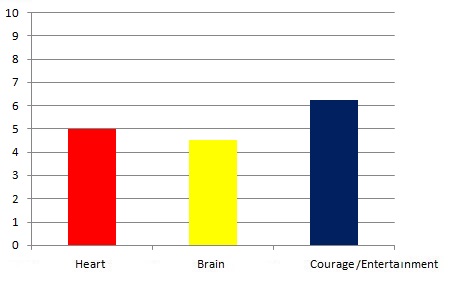
Main Page
Alphabetical Menu
Chronological Menu
|
Afterimage  In 1948, Wladyslaw Strzeminski (Boguslaw Linda), a Polish abstract painter, returned from WWI without an an arm or leg. He taught at an art school, Higher School of Visual Arts, in Lodz, and lost his wife, Katarzyna (Aleksandra Justa). His troubles had just begun, though, because the Communist government has mandated that art should be Socialist Realist, and bans abstract art. He bravely refuses to adhere to the party line, and, in turn, loses his job and the exhibition of his paintings at a museum. Afterimage, director Andrzaj Wajda's final film, is a mildly compelling and somber, but stodgy biopic that's weighed down by its stale screenplay and marginally saved by Boguslaw Linda's moving performance. His performance is very internal, and he manages to capture Strzeminski sans words. Screenwriter Andrzej Mularczyk doesn't delve too deeply when it comes to the relationship between Strzeminski and his estranged daughter, Nika (Bronislawa Zamachowska), or Hania (Zofia Wichlacz), one of his students who look up to him with reverence. The cinematography looks great, but every scene feels the same tonally without nearly enough levity, wit or palpable warmth that would enliven the film. Although Afterimage doesn't shy away from depicting Strzeminski at most tragic moments of his life as he suffers from poverty as a result of losing his job, it's Landa's performance, not the screenplay, that cuts below the surface and elevates the biopic. Too many scenes make their point early on before becoming repetitive and lacking vitality. At least the film doesn't overstay its welcome at 98 minutes; if it were over 2 hours, it would've been a chore to sit through.
 Alien: Covenant 
 The Commune  After his father dies and leave him his large house, Erik (Ulrich Thomsen), a professor, must decide whether to sell it or keep it. His wife, Anna (Trine Dyrholm), a news anchor, persuades him to turn it into a commune instead. Freja (Martha Sofie Wallstrom Hansen) agrees to live there along with some of their friends and strangers, i.e. Ole (Lars Ranthe), as well as Emma (Helene Reingaard Neumann), Erik's student with whom he has an affair that threatens his marriage. The commune becomes increasingly unstable the more time its members spend together. Set in the 1970's, the screenplay by writer/director Thomas Vinterberg and Tobias Lindholm blends tragedy and comedy with mixed results. The main problem is that the characters are too underdeveloped and bland to be memorable even though each has their own flaws. Erik and Anna clearly have a marriage that has grown stale, and it may or may not be salvaged when Erik's infidelity enters the picture. The film's second act meanders and drags at times while introducing subplots that don't go anywhere interesting nor do they cut deep. The dynamics between the characters are dull, and the same can be said for their conversations, although there's a modicum of wit every now and then. Too much of the film falls flat while suffering from lethargy. Unfortunately, the way that the screenplay resolves Anna and Erik's marriage issues feels a bit contrived and rushed in the third act that tries, yet fails, to generate any tears. In some cases, strong performances can rise above the material while in other cases they can't. The Commune offers nothing that's surprising or genuinely engrossing, and the decent performances fail to compensate for the overstuffed and undercooked screenplay. Un Padre No Tan Padre, a recent film that also centers around a commune, is a much more engaging, funny, poignant and wise dramedy.
 Paint it Black 
 Wakefield 
 Main Page Alphabetical Menu Chronological Menu ______________________________________________________ |
The NYC Movie Guru
themovieguru101@yahoo.com
Privacy Policy